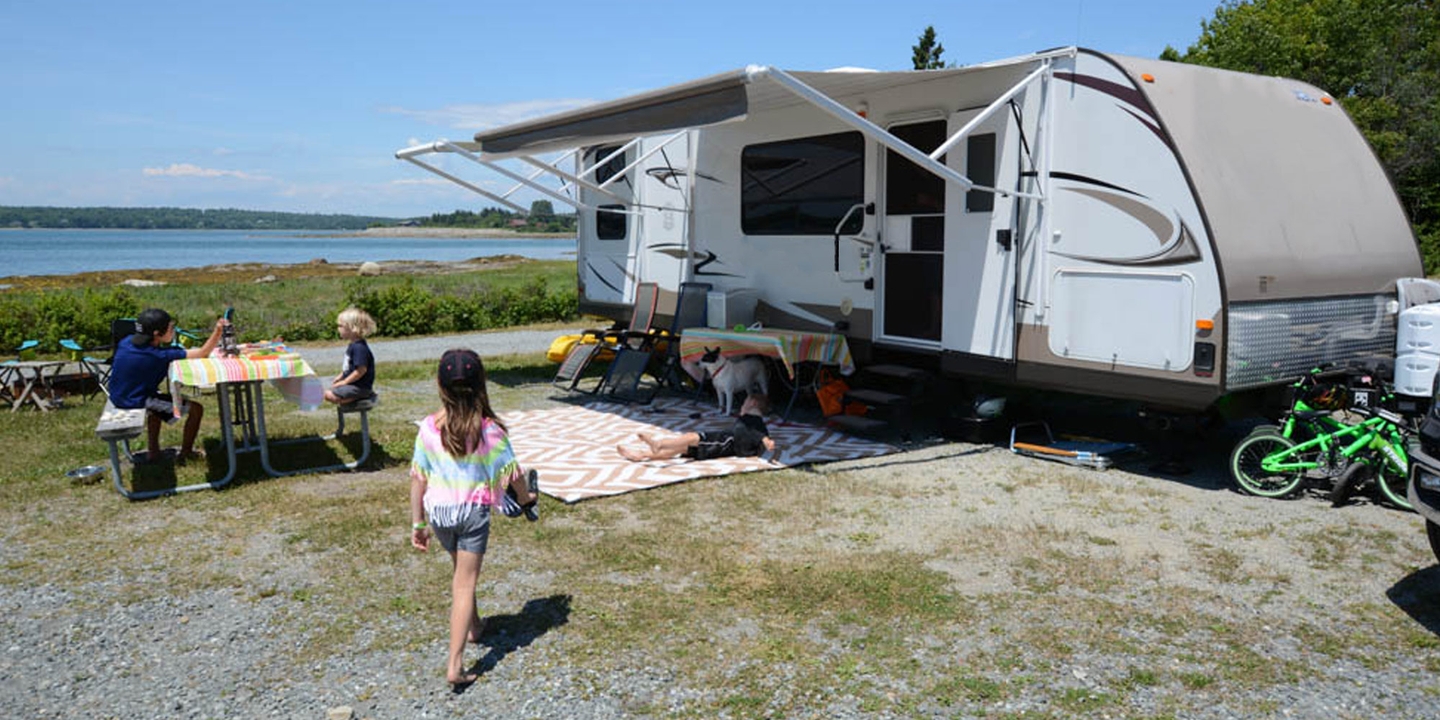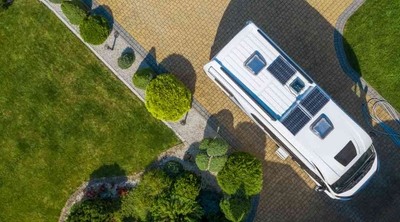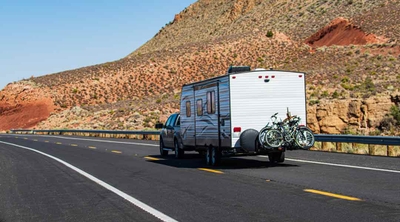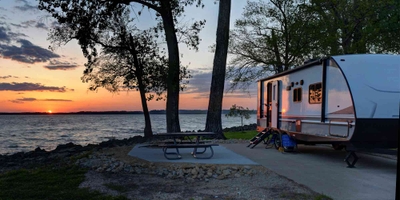How to store your RV
4 min read
Whether you're unpacking your RV from vacation, storing your RV between trips, or preparing to store your RV for the winter, it's important to cover your bases before closing and locking the camper door. Just like with a house or a car, regular maintenance is key to keeping an RV in tip-top condition.
RV storage tips
1. Remove food and debris
When storing an RV, it can be tempting to leave pantry items in the camper, especially if the cans aren't open or you use airtight containers. The best way to avoid rodent or insect invasions, however, is to never leave any food in the RV, no matter what container they're in.
You'll also want to thoroughly check hidden areas under the couch, dinette, and mattresses. Undetected cereal spills, for example, can attract destructive pests into the camper.
2. Clean the interior and exterior thoroughly
When it's time to store your RV, ensure your RV is as clean as possible. Get all food and liquid items out of the RV, including hand soaps, toothpaste, shaving cream, and the like. These bathroom items can freeze and crack during RV winter storage, leaving a sloppy mess in the spring when they melt.
It's important to clean out your fridge and prop open the fridge and freezer doors to avoid mold and mildew. Vacuuming all crumbs and mopping all surfaces will help keep your RV clean during winter storage and keep out mice and insects. A thorough cleaning includes spraying a diluted bleach solution in the refrigerator and freezer.
Before storing your RV, washing and waxing the outside of the RV will keep it looking great for years, but more importantly, it will help protect the exterior from elements of nature. Also extend the awning and ensure it's clean and dry before rolling it back up.
3. Prevent pest damage
- Sprinkle Borax around the perimeter of the RV for insect prevention.
- Coat electric and plumbing lines with dish detergent to keep away squirrels.
- Leave cotton balls soaked with essential oils to keep mice out of your RV.
4. Prevent moisture buildup
Moisture is the biggest enemy of an RV, so keeping it from building up during storage is critical. When storing an RV in heat, humidity, or varying temperatures, consider installing roof vents that allow you to keep them permanently open while also protecting the RV from precipitation.
Many first-time RV owners hang gel packs that pull the moisture out of the air or occasionally run a dehumidifier. Make sure there's no standing water on any surface of your RV at any time.
5. Disconnect your RV's battery
Many passive draws on your RV battery will pull charge even when you think you've shut everything off. Stereos and microwave clocks are a couple of common culprits. Manually disconnecting the battery, or installing a battery disconnect switch, will save you from being without power when you hitch up the RV for your next trip.
6. Prepare your RV's plumbing system
When preparing your RV for winter storage, get all water out of your tanks and fill them with antifreeze. You'll have to drain and flush your systems completely to remove all the water and then pour a couple of gallons of RV antifreeze down your drains. Be sure to bypass your water heater. You might need a bypass kit to do this.
If you're not confident with this process, have a local dealer or mobile RV repair service winterize your RV. If you prefer to do it yourself, follow your dealer's or manufacturer's instructions, as each RV has different requirements.
7. Cover your RV's tires
Investing in good tire covers for your RV will save you money down the road. Most RV tires take on more damage from UV exposure than by actual wear and tear on the roads. Travelers can suffer from tire blowouts, even though they haven't put that many driving miles on the RV, because sun exposure has damaged the tire wall. See RVshare's guide to the best tire covers.
Extensive exposure to the sun during RV winter storage can degrade the rubber and cause weather cracking as well. Using good quality tire covers are a simple and affordable preventative measure.
8. Add fuel stabilizer
Add fuel stabilizer to the engine and generator while they're idling. Start the engine every two months to recirculate the stabilizer.
Should an RV be stored with slides in or out?
According to Van Camping Life, it's best to store your RV with the slides in. Storing your RV with slides out increases the risk of problems, including leaky seals and possibly structural damage.
Travel trailer storage tips
Prepare your travel trailer for storage with these tips:
- Check your owner's manual for specific information.
- Seal every faucet.
- Wash your trailer and clean the inside thoroughly.
- Power off any electric heating elements.
- Clear any leftover fluid in the holding tank, toilet, and drains.
- Pressurize your water pump.
- Keep your trailer stabilized when empty.
Other considerations for storing your RV
Whether you're preparing your RV for driveway downtime or winterizing your RV, it's important to think about it like a house on wheels. Applying preventative cleaning and maintenance to your RV will ensure that it's in excellent condition the next time you're ready to hit the road.
And just like a home, you'll want to protect it while you're storing it from storm damage, theft, and vandalism with RV insurance. Learn more about how RV insurance works.






